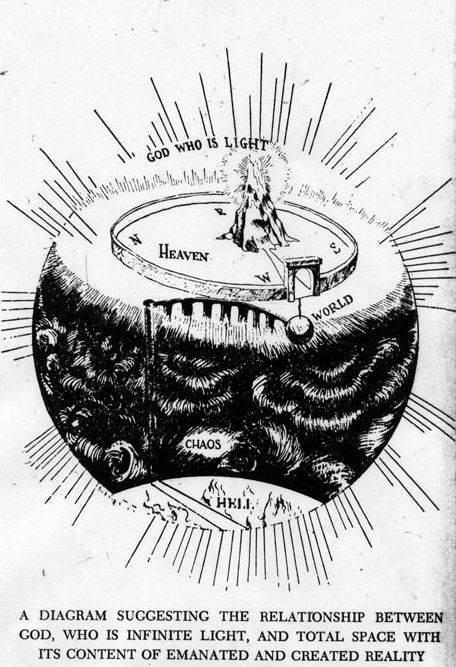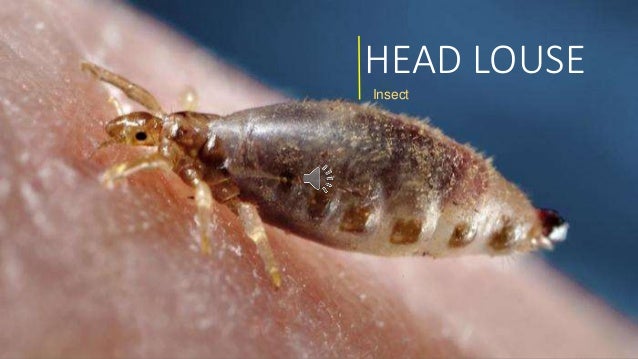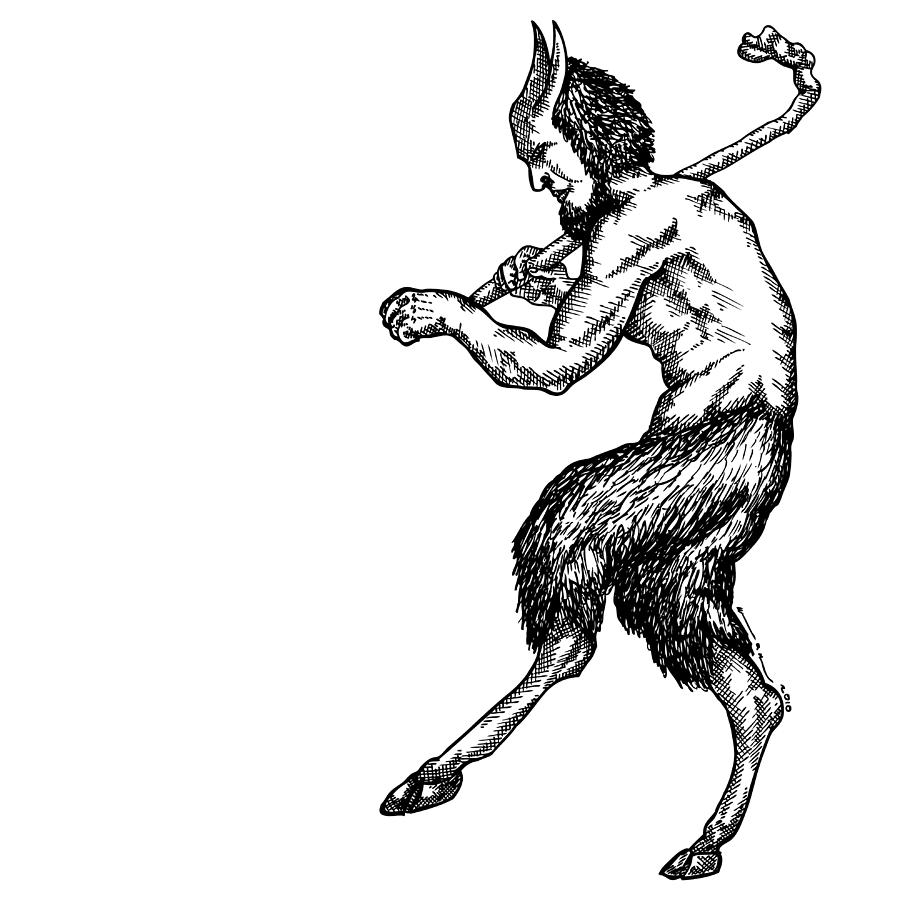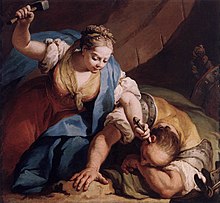dubious
of uncertain outcome
dubious
of uncertain outcome
Satan
Hebrew for "adversary"
Pole
Milton makes use of various images of the cosmos in Paradise Lost: (1) The earth is the center of the (Ptolemaic) cosmos of ten concentric spheres; (2) the earth and the whole cosmos are an appendage hanging from Heaven by a golden chain; (3) the cosmos seems Copernican from the angels' perspective (see Book 8). Here the fall from Heaven to Hell is described as thrice the distance from the center (earth) to the outmost sphere.

That comes to all
The phrase alludes to Dante ("All hope abandon, ye who enter here")
kenn
range of sight
cause
Opening questions like this are typical in epics.
Aonian Mount
Helicon, home of the classical muses.
Sion Hill
"Zion Hill" - site of Solomon's temple.
That Shepherd
Reference to Moses - "who first taught that chosen seed"
determin
i.e. what action to take
Fathers
Church Fathers, the Christian writers of the first centuries.
Center
i.e. of the earth
midst of things
According to Horace, the epic poet should begin "en media res" (in the midst of things).
THE ARGUMENT
"Paradise Lost" appeared originally without any sort of prose aid to the reader, but the printer asked Milton for some "Arguments," or summary explanations of the action in the various books, and these were prefixed to later issues of poem.
Cinque Ports
A group of channel ports, originally five in number ("cinque" is French for five); most English shipping to or from the Continent pass through these ports.
butt hee had never made any to such a person in his life.

Charles’s preservation
Charles I must have feared the capture or assassination of the heir apparent, Prince Charles, then in France with his mother, Marie Henrietta. If the younger son, James, were alive and at liberty, there would be no point in such an attempt to cut off the succession.
St Jarnes
St. James Palace, a royal residence. The two named below were other children of Charles I.
King’s service
The service of Charles I, then a close prisoner of the parliamentary army under Cromwell. In less than a year, he would be executed.
Westminster-hall
The center of the law courts and legal profession.
habeas corpus
writ to release the prisoner
remembered
reminded
advice
In December 1653, Cromwell was invested as Protector under a written constitution called the Instrument of Government. In 1657, another constitution, the Humble Petition and Advice, invested him with quasi-monarchical powers and restored the House of Lords.
parts
personal qualities/abilities
vic torie
Dunbar and Worcester were important battles that Cromwell had won on September 3.
Whitehall
Whitehall, in London, was the traditional residence of the head of state.
Hampton Court
Built by Cardinal Wolsey and ceded by him to Henry VIII, Hampton Court is an impressive palace up the Thames from London.
tertian ague
An acute fever, with paroxysms (spasms) recurring every third day.
he
Here Clarendon is describing, in the manner of ancient historians, the last days, sickness and death of Oliver Cromwell before summarizing his character.
archbishop
William Laud, archbishop of Canterbury, favored a highly ritualized form of worship that Puritans considered tantamount to Roman Catholicism. He was executed by the Parliamentarians in 1645.
parts
abilities
unfortunate
"Bloody Mary" Tudor, queen of England from 1553-1558, reintroduced Roman Catholicism to England and burned many Protestants for heresy; the Scottish Mary Stuart, also Catholic, was executed in 1587 for plotting to assassinate Elizabeth I.
fatality
Fatefulness.
let them remember that the felicity of her reign was the effect of her submission to her masculine and wise counsellors
how rude!
distaffs affect
Aspire to. "Distaff": spinning staff, emblem of female household management.
prerogative
Kingly powers.
prelacy
Rule of church by bishops.
force
Puritans suspected that Charles planned to invite Catholic forces to invade his realm in order to consolidate his own power.
French king
The French king reigned without a Parliament.
courts,
Courts administered by the Church of England tried and punished those who refused to attend church services, frequented alternative religious gatherings, or disputed church doctrines or policies.
discountenanced
Thwarted; out of favor.
plantation
Colony, such as the Massachusetts Bay Colony, founded in 1630.
papist
Roman Catholic.
primitive times
early Christian period
abusive
satiric
gravings
engravings
catamites
Clowns and homosexuals.
covenants
Though the terms are general, Hobbes refers in this chapter especially to the covenants men make with each other when they transfer power to the sovereign. Milton makes very different use of covenant theory to justify the rebellion and regicide in The Tenure of Kings and Magistrates
confound
confuse
propriety,
property
civil war
Hobbes here is probably referencing the English Civil War but might also be thinking of the Greek civil wars, as described by Thucydides (whom he translated).
but in the known disposition thereto during all the time there is no assurance to the contrary.
This is very well put; war begins when there is no longer a desire for peace.
contemners
Scorners
delectation
pleasure
confederacy
alliance
glasses
mirrors
sensible
i.e. accessible through the senses.
itself
Hobbes' physiology of sense is, in keeping with his premises, strictly mechanical.
sense
This view of the mind as a blank sheet written o by physical experience will influence the philosophy of John Locke and David Hume.
Creation.
Genesis 1:26
artificial life
Hobbes' definition of life as a motion collapses the distinction between the life of humans and the life of machines or institutions.
Leviathan
The title refers to the primordial sea creature Leviathan, described in Job 41 as the prime evidence of and analogue to God's power, beyond all human measure and comprehension. Hobbes takes him as figure for the sovereign power in the state. Leviathan was also sometimes take a as a figure for Satan, on the basis of Job 41:34.
keeping it together
I love how this modern expression shows up here...
New Year’s Gift
In 17th century England, gifts were customarily exchanged on New Year's Day, not Christmas.
God,
The Israelites, traditionally governed by judges, demanded a king despite God's warning against monarchy, as conveyed by the prophet Samuel.
Tertullian
Church Father Tertullian wrote against earthly monarchs in On the Crown
beck
"beck and call" = The king's command. Charles had claimed that Parliament could not assemble unless called into session by the king.
disengaged
Freed from having to obey.
arbitrement
Judgement
These
Kings and magistrates
civil right
law
derived
delegated
partial
biased
Adam’s transgression
Adam's fall introduced sin and violence into human life.
pretences
purposes
mischiefs
The suffering but not its causes.
paltered
played fast and loose
base compliances
Make their slavishness look good.
blind affections
impulses, passions
Tenure
Terms of holding office.
Decalogue
Ten commandments
Pater Patriae.
Father of his country.
respective
Partial, limited.
patriarchs
Forefathers of the Jews, including Adam, Noah, Abraham, Isaac, Jacob, and Jacob's twelve sons.
policy.
the conduct of public affairs
vulgar
commonly held
plausible
agreeable
divinity
Systematic theology, as undertaken by medieval philosophers in the universities ("schools")
George
A jeweled pendant representing St. George killing a dragon, worn by Knights of the Garter. The prince (following) is the king's eldest son, Charles II, who had escaped to exile in France.
please you –
As was customary, Charles tips Hacker, the person supervising his execution in hopes of ensuring a quick death.
somewhat
something
delivered
spoken
Sirs it was for this
Because I upheld the liberty of the people.
all the way
all the rationale
put you in a way
Both show you how you are wrong and put you on correct course.
St.Stephen
St. Stephen, the first Christian martyr, prayed that God not hold his persecutors responsible for their actions; recounted in Acts 7.
(meaning Strafford)
In an attempt to appease his opponents in Parliament, Charles reluctantly consented to the execution of his adviser, Thomas Wentworth, Earl of Strafford, for treason in 1641, despite lack of evidence that Strafford had committed any crime.
ill instruments
corrupt go-betweens
necessity of either
Of blaming either side for the war.
in charity
Practicing the charity that befits a Christian, I refuse to lay the blame for the war on my enemies.
comissions theirs and mine and likewise to the declarations
"Commissions" and "declarations" warrants for enlisting troops and proclamations of war.
it is the militia they began upon
In 1642, Parliament's Militia Ordinance transferred local militias from the king's control to Parliament's. Despite its failure to secure Charles' ascent to the measure, Parliament declared it legally binding.
hold my peace
Remain silent. It was common for condemned prisoners to address onlookers before their executions.
Col. Tomlinson
Matthew Tomlinson commanded the guards assigned to Charles. He was tried after the Restoration but was spared because he had been courteous to the king.
Dr. Juxon
William Juxson (1582-1663), Charles I's personal chaplain, was bishop of London until 1649, when he was deprived of office. In the late 1630s, he had also served as one of the king's financial advisors. After the Restoration, he became archbishop of Canterbury.
partizans
Guards armed with partisans, spears with lobed points.
S.James
Whitehall
Whitehall Palace was the English monarch's principal residence from 1530-1698, when most of it was destroyed by fire. The Banqueting House, designed by Inigo Jones with ceilings painted by Peter Peter Paul Rubens, was built for King James I in 1619-1622.
Lady, the Duchess of Newcastle
Plot twist: "The Duchess of Newcastle" is MARGARET CAVENDISH (seriously).
&c
Galileo Galilei (1564-1642), Italian astronomer and defender of the Copernican system; Pierre Gassendi (1592-1655), proponent of a mechanistic theory of matter; Rene Descartes (1596-1650), French mathematician and philosopher who had a major influence on the new science; Jan Baptista van Helmont (1579-1644), Flemish chemist; Thomas Hobbes, English mechanistic philosopher and political scientist, author of Leviathan; Henry More (1614-1687), one of the anti materialist Cambridge Platonists.
Cabbala
The Renaissance saw the birth of Christian Kabbalah (often transliterated as Cabala to distinguish it from Jewish Kabbalah and Hermetic Qabalah), also spelled Cabbala. Interest grew among some Christian scholars in what they saw to be the mystical aspects of Judaic Kabbalah, which were compatible with Christian theology.
Wherefore she consulted with her own thoughts, whether it was possible to convert them all to her own Religion, and to that end she resolved to build Churches, and make also up a Congregation of Women,
There you go...it's good to be the empress.
or it disorders my Reason, and puts my Brain on the rack;
Yes, these logic games can be rather taxing (quite a few logical fallacies demonstrated above).
and so dissolved their society.
Harsh.
Gum
Ah, of course - the supernatural substance...kryptonite anyone? Vibranium? In this case, a gum (then "oyl") of longevity....she later equates this to the philosopher's stone.
er Majesty had such great and able judgment in Natural Philosophy
I think Cavendish is referring to herself here...
taken much satisfaction in several of their Answers
She's quite taken with these worm-men...seems they are her favorites thus far.
Microscopes
Cavendish criticizes microscopes here and the experimental method in general.
Drone-flye
Also called a hoverfly:

Lowse
singular of "lice" - imagine this guy the size of an elephant:

Glasses
Remember that "glass/glasses" during this time can refer to lenses generally or mirrors.
for they are meer deluders, and will never lead you to the knowledg of Truth;
Why do you suppose Cavendish belabors this point about the divisive arguments that arise from the use of telescopes?
aid they, do several parts of the Air make different patterns of the luminous Bodies of the Sun and Moon:
interesting theory...
for their company hinders Devotion, and makes many, instead of praying to God, direct their Devotion to their Mistresses.
This is the first "non-utopian" aspect of this society I'm picking up on...something tells me the new Empress will do something about this...
Why they preferred the Monarchical form of Government before any other
Remember that she is writing in 1666; the monarchy has just been restored six years previously - what might the following passage betray about her own feelings on government?
many Laws made many Divisions
Interesting....
Galenick Physicians
"Galenic formulation" deals with the principles of preparing and compounding medicines in order to optimize their absorption. It is named after Claudius Galen, a 2nd Century AD Greek physician, who codified the preparation of drugs using multiple ingredients.
Satyrs
Definition: "one of a class of lustful, drunken woodland gods. In Greek art they were represented as a man with a horse's ears and tail, but in Roman representations as a man with a goat's ears, tail, legs, and horns."

Mear-men
Mermen, the male counterparts to mermaids:
Eunuches
Definition: "a man who has been castrated, especially (in the past) one employed to guard the women's living areas at an oriental court."
On her head she wore a Cap of Pearl
I'm picturing Nicholas Roerich's "Mother of Worlds" (1924)

for by that time she had pretty well learned their Language
That was quick!
Paradise
I really love this word as it is so evocative across cultures; etymologically speaking, it comes to us from Greek, though originally proto-Iranian meaning "walled enclosure" or "walled garden."
s a stream that runs betwixt two shores, at last perceived land, but covered all with Snow
I'm picturing this:

Losses
Cavendish's husband, William, was formally banished from England and his estates confiscated in 1649l they were all restored after the Restoration. During his banishment, Margaret estimated that he suffered financial losses of around GBP 940,000.
chaines
her virtues
hest
commission
wonted
accustomed
bereaue
soon take away from it
Dorsets
As was common, Anne Clifford here is referred to by her husband's title.
loue
Ie., we (lowly) may also love God and enjoy God's love, and hence are equal to anyone.
conster
construe
conceit
thought/fancy
lowest alwayes are aboue
"the lowest are always above" - an egalitarian sentiment playing on the Christian notion that in spiritual matters - love and charity - the poor and lowly surpass the great ones.
parts
qualities
espows’d
espoused (i.e., married); Anne Clifford was married to Richard Sackville, third earl of Dorset on February 25, 1609.
Grace
Main line of the family tree. Anne Clifford, only surviving child of the seaman-adventurer George Clifford, third earl of Cumberland, and the countess, A Russell ("of Bedford's blood").
need
Like Joseph, who fed the starving Israelites in Egypt, you fed the hungry.
Eternall King
You often sang David's psalms.
Will
You sought out and followed God's law like Moses, who received the Ten Commandments on Mount Sinai.
descrie
perceive
sute
suit; To urge some unexpected petition, as to a monarch.
Phebus
resisted the sun
Ph#339;nix
Not sure what happened here (?) The word is "Phoenix" referring to the mythical bird that lived alone of its kind for five hundred years, then was consumed in fire and reborn from its own ashes; metaphorically, a person of rare excellence.
Philomela
In myth, Philomela was raped by her brother-in-law Tereus, who also tore out her tongue; the gods transformed her into a nightingale. Here the bird's song is joyous ut late mournful (line 189) , associated her own woes with those of Cookham at the women's departure.
similies
behaved in similar way
Liueries
liveries; distinctive garments worn by persons in the service of great families, to indicate whose servants they were.
against
in preparation for
Ioyes
joys
delight
Apparently a reference to the countess as her patron, commissioning her Passion poem.
indite
write
Palate
palace
Grace
Here, both God's grace and the favor of Her Grace, the Countess of Cumberland. Lanyer attributes both her religious conversion and her vocation as a poet to a period of residence at Cookham in the countess' household. We do not know how long or unde rwhat circumstances Lanyer resided there.
perfit
perfect
The Description of Cookham
The poem was written in honor of Margaret Clifford, Countess of Cumberland, and celebrates a royal estate leased to her brother, at which the countess occasionally resided. The poem should be compared with Jonson's "To Penshurst" Lanyar's poem is based on a familiar classical topic, the "farewell to place," which had its most famous development in Virgil's Eclogue 1. Lanyer makes extensive use of the common pastoral motif of nature's active sympathy with and response to human emotions--which later came to be called the "pathetic fallacy"
Saul
King of Israel who sought the death of God's anointed prophet-king, David. The parallel is with Pilate, who sought Christ's death.
reprobate
damned
iust man
"just man" = Christ
challendge
claim
little starre.
In the Ptolemic system, the sun was larger than the other planets and the fixed stars.
mortall sinnes
Sins punishable by damnation.
Satans
Tradition identifies the serpent with Satan though that identification is not actually present in Genesis.
one of many Worlds
May refer to the commonplace belief that man is a "little world" - here applying it to women.
made of him
Genesis 2:21-22 reports God's creation of Eve from Adam's rib.
proue
experience
it was for knowledge sake
Here Lanyar argues that Eve ate of the apple in pursuit of knowledge...Adam? He thought the fruit looked tasty ("The fruit beeing Faire perswaded him to fall...")
stay
prevent
breath
The breath of life, which would have been eternal.
strait
strict
fram’d
in this case, "fashioned" or "made"
frame
determine
What Weaknesse offred Strength might haue refus’d,
This is a great line; basically, though others may be weak (here she is referring to Eve who has already been enticed) ultimately, each individual is responsible for his/her own actions so Adam is as worthy of blame.
he
the serpent
alleadg’d
asserted
condiscended
consented
bereauid
"bereaved" = "deprived". Here Lanyar is referring specifically to eternal life. In Genesis 3, Eve was enticed by the serpent to eat the forbidden fruit; she, in turn, enticed her husband. God expelled them from Eden, condemning Adam to hard labor, Even to pain in childbirth and subjection to her husband, and both to suffering and death.
see
In Eden, Eve ate of the forbidden fruit first, at the serpent's bidding. Genesis commentary usually emphasized Eve's full knowledge that God had forbidden them on pain of death and banishment from Eden to eat the fruit of the Tree of Knowledge of Good and Evil. Her action was usually ascribed to intemperance, pride and ambition.
Mens fall,
The fall of Adam, and the prospective fall of Pilate.
Sauiours life
Pilate's wife wrote her husband a letter urging Pilate to spare Jesus, about whom she had a warning dream (Matthew 27:19).
imbrue
stain
Cause
case
Eve’s Apology in Defense of Women
Lanyar supplies the title for this subsection of the Salve Deus on her title page. Eve is not, however, the speaker; rather, the narrator presents Eve's "apology" (defense of her own actions), which also a defense of all women. She does so by means of an apostrophe (impassioned address) to Pilate, the Roman official who authorized the crucifixion of Jesus. Lanyar makes Pilate and Adam representatives of the male gender, whereas Eve and Pilate's wife represent womankind here.
sent a woman
Mary Magdalen (John 20:1-18).
dispose of a woman
dispose = "take care of". In this case, referring to Jesus' request that his apostle John care for his mother Mary (John 19:25-27).
to be begotten of a woman, borne of a woman, nourished of a woman, obedient to a woman; and that he healed woman, pardoned women, comfor- ted women
Good use of repetition here; an argument that Jesus himself honored women and took them as his disciples as well, and first appeared to women once resurrected.
Susanna
Jewish wife and example of chastity) (6th century BCE). She was falsely accused of adultery by two Jewish elders, in revenge for refusing their sexual advances, and condemned to death. The wise judge, Daniel, saved her by uncovering the elders' perjury (Apocrypha, Book Susanna). 
Heber the Kenite
Sisera (Canaanite leader, hence "Cesarus" ie "Caeser") was a Canaanite military commander (12th century BCE) routed in battle by the Israelites under the leadership of the prophetess Deborah. Sisera was subsequently killed by the Kenite woman Jael, who enticed him to her tent then drove a tent spike through his temples while he slept. 
Hester
Or, "Esther" (5th century BCE), the Jewish wife of the Persian king Ahasuerus (Xerxes I), who by her wit and courage subverted the plot of the king's minister, Haman, to annihilate the Jews of Persia.
lesse
As her poetry of praise cannot possibile do justice to the queen, she abandons an attempt that would obscure rather than promote the queen's fame.
hers
Nature and those (especially women) under Nature's protection.